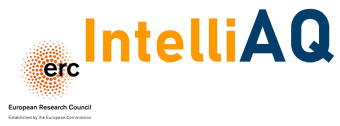Machine learning (ML) is rapidly gaining momentum as a new toolbox for analysing atmospheric data. While there are now several workshops, fora and conferences to discuss ML applications in the weather and climate domain, discussions on ML applications for air quality remain fragmented. The ERC project IntelliAQ has explored several modern ML concepts for air quality research and we would like to engage in a discussion with the international community about the potential and limitations of ML in this field.
The workshop aims to bring together researchers from the air quality and machine learning communities for discussion of recent research progress and future priorities. We encourage oral and poster contributions from researchers in either of these areas, and particularly welcome contributions at the intersection of these fields.
We are looking forward to meet you in Cologne or online.

